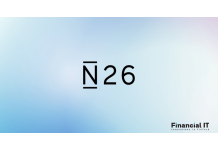ClearBank Partners With Finseta To Power Its...
- 09.12.2025 09:15 am
Wakam UK Ltd Partners With Vitesse To Accelerate...
- 09.12.2025 08:35 am
TenPay Global And Mastercard Collaborate To Enable...
- 08.12.2025 02:15 pm
N26 Joins European Digital Payment System Wero
- 08.12.2025 01:15 pm
Poor Data Quality Threatens AI Ambitions In Payments...
- 08.12.2025 10:50 am
Quality Automotive Services Increases Employee Tenure...
- 05.12.2025 10:30 am
Trulioo Joins Google’s Agent Payments Protocol (AP2)...
- 05.12.2025 09:45 am
Klarna Launches Premium And Max Memberships In The U.S...
- 05.12.2025 09:45 am
One Inc Partners with Benekiva to Deliver Fully...
- 04.12.2025 03:15 pm
QuickBooks Payments Launches, Helping Customers Get...
- 04.12.2025 03:05 pm
Circle Collaborates with Pismo and Visa to Launch...
- 04.12.2025 12:15 pm
Cumbuca Launches Fast-Track Payments Initiation Access...
- 04.12.2025 10:15 am






















